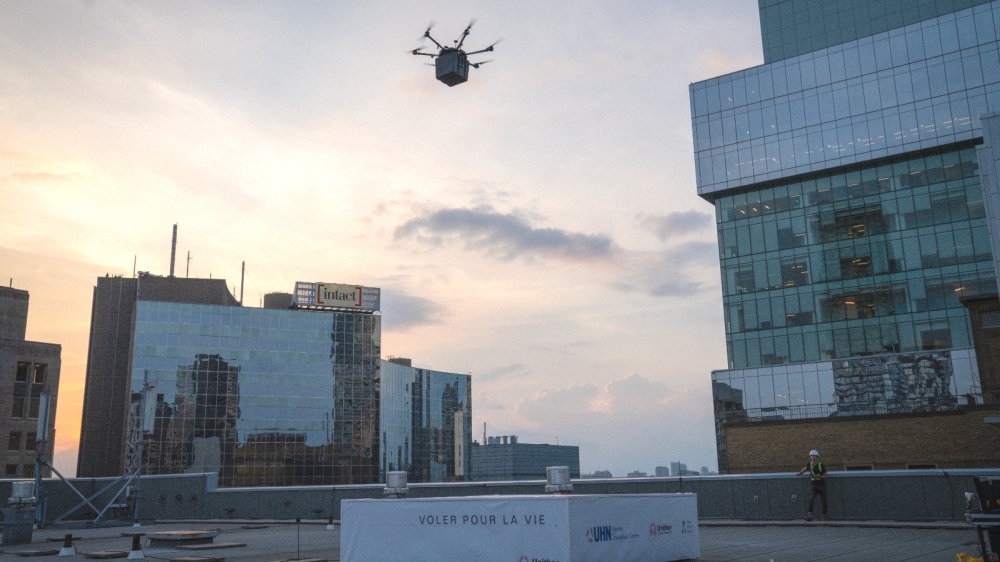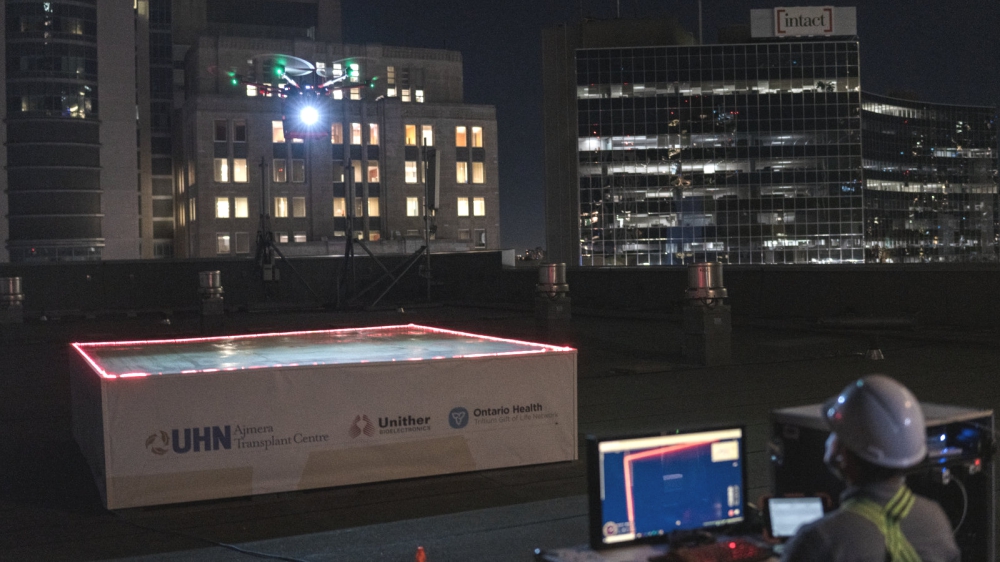has set its sights on transforming the way we think of transplantable organ transportation, either donor organs or manufactured organs. In September 2021, in a proof-of-concept flight, the company transferred donor lungs for transplant between two hospitals using its proprietary aerial drone organ transportation technologies.
The few minutes flight, from Toronto Western Hospital to Toronto General Hospital, was the first time a lung has been delivered via drone anywhere in the world. This innovation in the transportation of organs has the potential to significantly increase the transfer efficiency between donors and recipients, especially in congested urban areas.
These flights are also symbolic as the first single and double lung transplants in the world occurred at Toronto General Hospital, and Unither’s parent company United Therapeutics has a track record of developing medicines and technologies specifically targeting end-stage lung disease and organ manufacturing. The technology inherent in this effort is not a small feat and represents significant effort of development and investment at the intersection of medicine and aviation.
The Unither Organ Delivery Systems research & development program started several years ago as a conversation between Martine Rothblatt, CEO of United Therapeutics and Mikaël Cardinal, VP, Program Management, Organ Delivery Systems at Unither. After two years of research and development (and a pandemic!), one of many moonshots became a real-life earthshot as Mikaël and his team of drone specialists at Unither were able to bring this ground-breaking technology to fruition and save an actual human life.
Unither’s first achievement in saving lives happened in September 2021 with a set of lungs for transplant being safely carried by their drone between two hospitals in Toronto, Canada. The flight demonstrated that a life-saving organ can be safely and quickly flown via drone over a high-density urban setting and highly congested traffic area, maintaining the right conditions for the organ, while successfully interfacing and coordinating with a medical transplant team, in this case, Toronto General Hospital’s world-renowned lung transplant team led by Dr. Shaf Keshavjee.
Our other aviation strategy at United Therapeutics is to extend the range of drone aircraft. We are now building drones that can fly 100 miles, and then 200 miles. Ultimately, we plan to have droned aircraft deliver lungs, hearts, and kidneys throughout all of North America.
Martine Rothblatt, PhD – CEO of United Therapeutics
While a proof-of-concept, the success of this project establishes solid ground work for organ delivery in an urban setup and paves the way for semi-autonomous “Beyond-Visual Line-Of-Sight” organ delivery in complex environments. Through this project, we have established an important stepping stone for future organ delivery that ultimately will open the door for large-scale adoption of larger fully autonomous, electrically-powered, environmentally-friendly drones that have the ability to efficiently and cleanly deliver organs for transplant across trans-continental distances.
At the health system level, the use of drones for organ transportation will ultimately bring important advantages to improve the availability and effective distribution of scarce life-saving organs for transplantation. With this unique technology we may one day be able to transport organs with fewer logistical barriers and eliminate the need to transport whole surgical teams in larger aircrafts. Simply put, drones may help organs for transplants get to the people who need them, quicker and in a more cost-effective way.
This is a major steppingstone both from an aviation perspective and a healthcare perspective. I hope that six months, one year down the line, I’d be able to meet the patient and see them in good health, enjoying life.
Mikaël Cardinal – VP, Program Management – Organ Delivery Systems at Unither Bioelectronics
This historic achievement would not have been possible without the contributions of Canada’s University Health Network (UHN), Toronto General Hospital’s world-renowned Ajmera Transplant Centre and UHN’s Surgeon-in-Chief and Director of the Toronto Lung Transplant Program, Dr. Shaf Keshavjee, Ontario Health (Trillium Gift of Life Network) and, most importantly, the generosity of the organ donor and their family along with the organ recipient.



